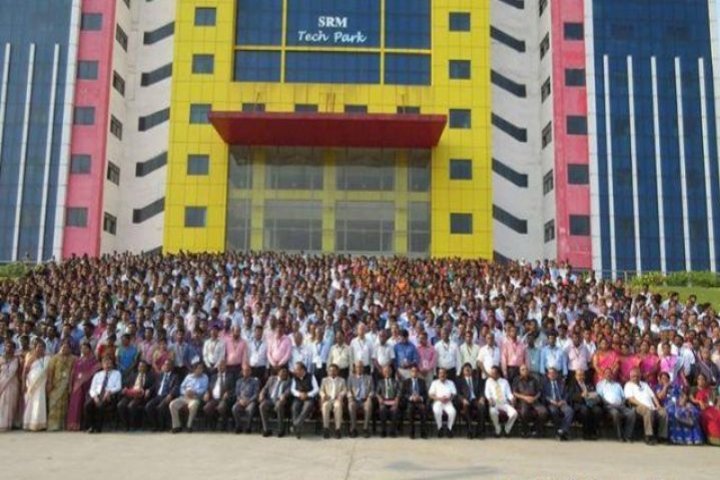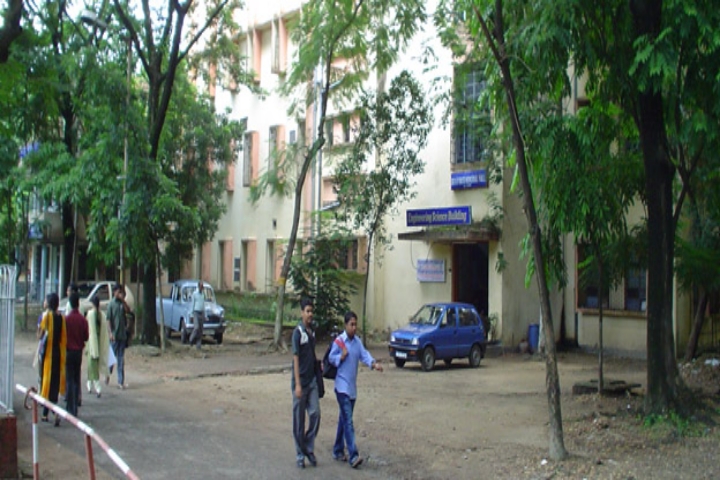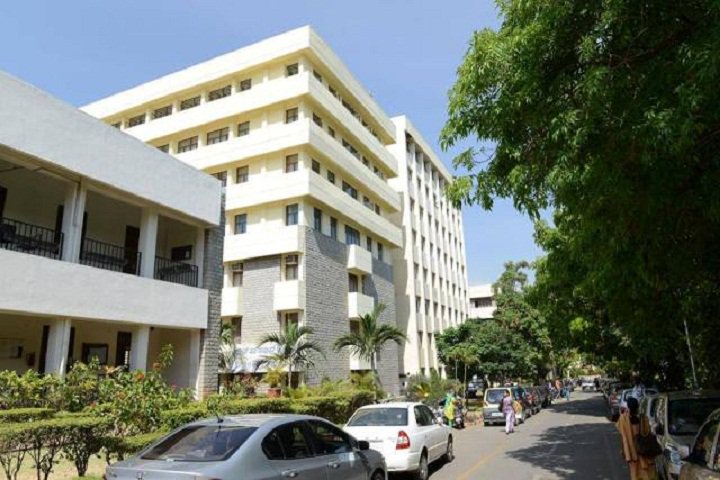
Electronics and Instrumentation Engineering Course Details - Fees, Subjects, Syllabus, Duration, Eligibility, Career Scope
Degrees offered: B.E /B.Tech, Ph.D, Diploma, M.E /M.Tech., M.Sc.
What is Electronics and Instrumentation Engineering
Electronics and instrumentation engineering (EIE) is an advanced branch of science that deals with the principles and operations of measuring instruments used in the design and configuration of automated systems. The Electronics and Instrumentation Engineering field deals with the creation, building, and maintenance of measuring and control devices and systems found in manufacturing plants and research institutions.
The Instrumentation Engineering branch of Engineering is quite tough because it requires the students’ notional thinking. The scope of Electronics and Instrumentation Engineering is vast and connects all branches of Engineering. Electronics and Instrumentation Engineering graduates have the advantage of being able to work both inside and outside of their core industries.
There are 120 colleges in India offering Electronics and instrumentation engineering courses to students. For an undergraduate course, candidates should complete their 10+2 from a recognised board in the field of Science. For a postgraduate course, they must have to complete a bachelor’s degree in a relevant discipline with a valid aggregate score.
Highlights- Electronics and Instrumentation Engineering
Particulars | Values |
Branch Name | Electronics and Instrumentation Engineering |
Degree | |
Duration | UG: 4 years PG: 2 years |
Eligibility | UG: 10+2 with Science PG: Bachelor’s degree in engineering or related discipline |
Admission Process | Admission Examination/ Direct Admission |
Top Entrance Exams | JEE Main, JEE Advanced, SRMJEEE, and GATE |
Average Course Fees | Rs. 55,080 to Rs. 21.65 Lakhs |
Career Options | Instrument Designer, Instrument Operator, Instrument Engineer, Procurement Manager |
Average Salary | Rs. 5 LPA |
Recruiting Companies | BPCL, NPCL, Reliance, Thermax, L&T, Accenture, Amazon, Infotech |
Specialisations or Similar Ones
Electronics and Instrumentation engineering is a sub-branch in the field of Engineering. In the table below, we have mentioned some of the specialisations similar to Electronics and Instrumentation engineering:
BE Electronics and Instrumentation Engineering | |
ME Applied Economics | M.Tech Electronics and Instrumentation Engineering |
Diploma and B.Tech Electronics and Instrumentation Engineering Integrated | B.Tech Electronics and Instrumentation Engineering Lateral Entry |
PhD B. Electronics and Instrumentation | - |
Top Private Electronics and Instrumentation Engineering Colleges in India
More than 80 private institutes offer Electronics and Instrumentation Engineering courses in India. Candidates are advised to carefully check the eligibility criteria of the course and follow the admission process. Mentioned below are the top private electronics and instrumentation engineering colleges in India.
Colleges | Fees |
Rs. 4.87 Lakhs | |
Rs. 22.32 lakhs | |
Rs. 4.20 Lakhs | |
Rs. 3.68 Lakhs | |
Rs. 2.80 Lakhs | |
Rs. 6.92 Lakhs | |
Rs. 11 Lakhs | |
Rs. 6.67 Lakhs | |
Rs. 1.83 Lakhs | |
Rs. 14.91 Lakhs |
Note: The fee structure provided above can be for any particular Electronics and Instrumental Engineering (Diploma/ Degree/PGD).
Top Government Electronics and Instrumentation Engineering Colleges in India
Around 40 government institutes are offering Electronics and Instrumentation colleges at both undergraduate and postgraduate levels. Admission to these institutes is either based on an entrance exam or direct admission based on merit score. Mentioned in the table below are the top government institutes in India offering Electronics and Instrumentation Engineering courses.
Colleges | Fees |
Rs. 2.15 Lakhs | |
Rs. 55,080 | |
Rs. 3.33 Lakhs | |
Rs. 2.65 Lakhs | |
Rs. 1.28 Lakhs | |
Rs. 6.29 Lakhs | |
Rs. 2.14 Lakhs | |
Rs. 6 Lakhs | |
Rs. 5.63 Lakhs | |
Rs. 5 Lakhs |
Eligibility Criteria (UG & PG) of Electronics and Instrumentation Engineering
The eligibility criteria for Electronics and Instrumentation Engineering depends on the level of education and type of the institute. Candidates should check the eligibility criteria carefully before applying for admission to the desired course and institute.
Eligibility Criteria for UG Courses
Candidates must carefully study and meet the eligibility criteria of the desired institute to be eligible for admission. They must also appear for entrance examinations stated by the institute for admissions.
- Candidates should complete their 10+2 qualification exam from a recognised board in the science stream.
- Candidates should have passed Physics, Chemistry, and Mathematics as compulsory subjects.
- The qualification marks are generally 50 per cent aggregate, but it can also vary depending on the institute.
- JEE Main and JEE Advanced are popular entrance examinations at the undergraduate level.
Top Entrance Exams for UG Courses
There are various entrance examinations for aspirants who wish to study engineering courses in this specialisation. The entrance exams are as follows:
Exam Name | Level | Conducting Body | Exam Schedule |
National | NTA | ||
National | IIT Bombay | ||
University | VIT | ||
University | SRM University | ||
State | KEA |
Eligibility Criteria for PG Courses
The eligibility criteria for postgraduate courses in the field of Electronics and Instrumentation Engineering depend on the institute, but it remains almost the same for every institute. Generally, for a postgraduate course, the candidates have to meet the following requirements:
- Aspiring candidates must have a UG engineering degree in a related discipline from a recognised university.
- They must have a minimum of 50 per cent marks in their UG degree (it can vary across colleges).Electronics and Instrumentation Engineering
- They need to clear the entrance examination for admission to Electronics and Instrumentation Engineering PG courses.
Top Entrance Exams for PG Courses
There are national and state-level entrance examinations for admission into the Electronics and Instrumentation Engineering degree programme. The details of the examination are as follows:
Exam Name | Level | Conducting Body | Exam Schedule |
National | IITs | ||
State | Sri Venkateswara University Tirupati | - | |
State | JNTU Hyderabad | - |
College Predictors VIEW ALL
Scope of Electronics and Instrumentation Engineering in India and Abroad
In India, Electronics and Instrumentation Engineering is a rapidly growing field. Despite being less popular than other engineering disciplines, it offers a wide range of job opportunities in both public and private sectors. Graduates can find high-profile roles in leading organisations across various sectors.
Internationally, the scope of Electronics and Instrumentation Engineering is equally promising. Graduates can find employment in diverse industries such as petrochemical, automobile, and oil and gas. Candidates can go for various career opportunities such as Instrument Designer, Instrument Operator, Instrument Engineer, and Senior Instrument Technician.
Course Fees Electronics and Instrumentation Engineering
| Minimum Fees | Maximum Fees | |||
|---|---|---|---|---|
| Private | Government | Private | Government | |
| UG | ||||
| PG | ||||
| DOCTORAL | ||||
| DIPLOMA | ||||
Course Subjects
Electronics and Instrumentation Syllabus for UG Courses
The syllabus of Electronics and Instrumentation engineering depends on the institute but it remains almost the same for every institute. Some of the subjects taught in the field of Electronics and Instrumentation Engineering are Basic Electrical And Electronics Engineering, Computer Programming Lab, and Applied Mathematics for Instrumentation Engineers. Mentioned below is the syllabus of SCSVMV University.
Semester 1 | |
English 1 | Basic Mathematics For Engineering - I |
Engineering Physics | Basic Electrical And Electronics Engineering |
Computer Programming | Sanskrit And Indian Culture - I |
Engineering Graphics ( Practical) | Physics Lab |
Computer Programming Lab | Basic Electrical Workshop |
Semester 2 | |
English -II | Basic Mathematics For Engineering - II |
Engineering Chemistry | Basic Civil And Mechanical Engineering |
Electric Circuit Theory | Environmental Science And Engineering |
Sanskrit And Indian Culture - II | Chemistry Lab |
Circuit Theory Lab | Basic Mechanical Workshop |
Semester 3 | |
Applied Mathematics for Instrumentation Engineers I | Principles of Communication |
Electronic Devices and Circuits | Sensors And Transducers |
Electrical Engineering | Object Oriented Programming Using C++ |
Sanskrit & Indian Culture - III | Soft Skills-I |
Electronic Devices and Circuits Lab | Object Oriented Programming Using C++ Lab |
Electrical Engineering Lab | - |
Semester 4 | |
Applied Mathematics for Instrumentation Engineers II | Linear Integrated Circuits |
Industrial Instrumentation | Digital Electronics |
Signals and Systems | Measurements and Instrumentation |
Sanskrit & Indian Culture - IV | Soft Skills-II |
Linear Integrated Circuits & Digital Lab | Measurements and Instrumentation Lab |
Transducer and Industrial Instruments Lab | - |
Semester 5 | |
Applied Mathematics for Instrumentation Engineers III | Control Systems |
Power Plant Instrumentation | Digital Signal Processing |
Power Electronics and Drives | ThermoDynamics and Fluid Mechanics |
Sanskrit & Indian Culture - V | Soft Skills-III |
Thermodynamics And Fluid Mechanics Lab | Power Electronics and Drives Lab |
Control Systems Lab | Industrial Training Process |
Semester 6 | |
Operational Research | Microprocessor and Microcontroller |
Process Control Instrumentation | Industrial Chemical Process |
Analytical Instrumentation | Fiber Optics and Laser Instrumentation |
Sanskrit & Indian Culture - VI | Soft Skills-IV |
Microprocessor and Microcontroller Lab | Simulation Lab |
Industrial and Process Control Lab | Industrial Training Process |
Semester 7 | |
VLSI Design | Embedded Systems |
Principle of Management & Professional Ethics | Computer Control of Process |
Elective – I | Elective – II |
Computer Control Lab | Virtual Instrumentation Lab |
Project Work Phase I | - |
Semester 8 | |
Robotics and Automation | BioMedical Instrumentation |
Elective – III | Elective – IV |
Project Work Phase II | - |
Electronics and Instrumentation Engineering Syllabus for PG Courses
The syllabus of Electronics and Instrumentation Engineering at the postgraduate level has diverse subjects such as Modern Control Systems, Industrial Electronics, Optimal Control Systems, and Stochastic Control. Mentioned below is the syllabus of JC Bose University for their M.Tech Electronics and Instrumentation Engineering course:
Semester 1 | |
Modern Control Systems | Industrial Process Control |
Industrial Electronics | Optimisation Techniques |
Control and Computation Lab | Modelling and Simulation Lab |
Semester 2 | |
Nonlinear Control System | Optimal Control System |
Electronics Instrumentation | Elective- I |
Advanced Microprocessor | Industrial Electronics Lab |
Seminar | - |
Semester 3 | |
Computer Control of Process | ANN and Fuzzy Control |
Stochastic Control | Elective- II |
Minor Project | - |
Semester 4 | |
Dissertation | - |
Careers in Electronics and Instrumentation Engineering
There are many career choices after the Electronics and Instrumentation engineering course. Many multinational companies and government agencies hire instrumentation engineers and offer high packages. Mentioned below are top career options along with the job description of the same.
Job Profile | Job Description |
Instrument Designer | Instrument Designer designs prototypes and does troubleshooting, testing, and installing. They also assist in the creation and development of instruments. |
Instrument Operator | Instrument Operator adjusts and operates instruments. They also make sketches and enter data into systems. |
Instrument Engineer | Instrument Engineer designs, develops, installs, and maintains equipment. They also make sure that the machines work effectively and efficiently. |
Instrument Technician | Instrument Technicians are responsible for all instrumentation and safe operation. They also discuss progress on work. |
Instrument Inspector | Instrument Inspectors check the installation of instruments and examine their functions. |
Procurement Managers ensure cost-effective purchase of all materials and services as required by the plan. Ensures quality control according to the company’s policies and procedures. |
Upcoming trends
Electronics and Instrumentation Engineering is a dynamic field that is currently witnessing significant transformation due to the advent of new technologies. This discipline, which traditionally focused on the principles and operations of measuring instruments used in automated systems, is now embracing cutting-edge trends. Mentioned below are some of the upcoming trends and topics.
- Internet of Things
- Advanced Microelectronics
- Artificial Intelligence
- Miniaturisation
- Energy Harvesting and Management
- Organic Electronics
- Robotics and Automation
- Advanced Technologies and Materials
Job Profiles and Top Recruiters
Some of the areas where Electronics and Instrumentation Engineering graduates can work are Manufacturing firms, Software Companies, Instrumentation industries, and Government sectors. Some of the top recruiters in the field of Electronics and Instrumentation engineering are:
Top Recruiters:
- BPCL
- NPCL
- Reliance
- ONGC
- Emerson
- Thermax
Average Salary
The salaries for the Electronics and Instrumentation engineering course depend on the job profile, location of the company, and skills and experience of the student. Mentioned below is the average salary of popular career options in the field of Electronics and Instrumentation engineering.
Job Profile | Average Salary |
Instrument Engineer | Rs. 6.48 LPA |
Rs. 3.9 LPA | |
Procurement Manager | Rs.5.96 LPA |
Instrument Operator | Rs. 2.5 LPA |
Senior Instrument Engineer | Rs. 8.4 LPA |
Instrument Commissioning Engineering | Rs. 6 LPA |
Source: Glassdoor, Ambitionbox
Note: Salary may vary depending on various factors.
Required Skillset for Electronics and Instrumentation Engineering
Electronics and Instrumentation Engineering just like any other field requires certain skills to perform well in the field. Candidates must have these skills to perform well in the field of Electronics and Instrumentation Engineering. Mentioned below are some necessary skills in the field of Electronics and Instrumentation Engineering.
- Problem-Solving
- Good Communication Skills
- Interest and Aptitude for Engineering and Technology
- Technical Knowledge
- Hard Work
Course Curriculum for Electronics and Instrumentation Engineering
The course curriculum of Electronics and Instrumentation Engineering is comprehensive and multidisciplinary and focuses on mathematics and electronics, microprocessors and microcontrollers, transducers, fiber optics, and computer programming among other related fields. Students learn about the principles and operations of measuring instruments used in the design and configuration of automated systems.
Popular Electronics and Instrumentation Engineering Entrance Exams in India
Frequently Asked Questions (FAQs)
Question: What is the difference between instrumentation and control engineering and electronics and instrumentation engineering?
Answer :
Electronics and Instrumentation Engineering is different from IC because EIE deals with electronics as well as the instrumentation part. IC deals with the control system and instrumentation field. Electronics and Instrumentation Engineering includes Embedded Systems, Control Systems Instrumentation, Biomedical Instrumentation, and Automation whereas IC includes mostly Control System, DCS, Networking, and also Security in DCS.
Question: Which is better, EIE or ECE?
Answer :
Both EIE and ECE have a good scope in today’s industrial world. ECE students get placed in software companies but EIE students have lesser chances unless they are technically skilled. However, there are not many differences between the career aspects of both branches.
Question: What is the best scope of electronics and instrumentation engineering?
Answer :
Multinational companies/ global firms are the best among the various opportunities for electronics and instrumentation engineers. Because the salary is high and satisfying. Another significant option is to work on a contract basis. That is staying independent and working with full freedom.
Question: What are the top recruiters in Electronics and Instrumentation engineering degree programmes?
Answer :
Some of the top recruiters in the field of Electronics and Instrumentation Engineering are BPCL, NPCL, Reliance, ONGC, Emerson, and Thermax.
Question: Is a diploma in electronics and instrumentation worth it?
Answer :
A diploma can become one of the strongest foundations for higher studies if you do it correctly. With fewer practical problems, the diploma focuses more on theory. It demands strong mathematics and physics skills.
Question: Is there any scholarship for electronics and instrumentation engineering?
Answer :
Yes, irrespective of the caste of a student, scholarship is offered on a merit basis to students who want to pursue electrical and bioengineering degrees in India. All India Engineering Entrance Scholarship Examination is the way you avail your scholarship.
Question: What are the top entrance exams in the field of Electronics and Instrumentation Engineering?
Answer :
The top career options in the field of Electronics and Instrumentation Engineering are JEE Mains, JEE Advanced, and GATE, depending on the level of education.
Question: What are the career options in the field of Electronics and Instrumentation Engineering?
Answer :
The career options in the field of Electronics and Instrumentation Engineering are Electronics Engineer, Instrument Designer, Instrument Operator, Instrument Engineer, Instrument Inspector, and Procurement Manager.
Question: What is the average salary of Electronics and Instrumentation engineering graduates?
Answer :
The average salary of an Electronics and Instrumentation engineer depends on the skills and expertise of the candidate. The average salary of an Instrument Engineer varies from Rs. 5 LPA.
Question: What are some of the subjects taught in the Electronics and Instrumentation Engineering course?
Answer :
The subjects taught in the Electronics and Instrumentation Engineering course are Industrial Electronics, Optimisation Techniques, Nonlinear Control Systems, Electronics Instrumentation, and Stochastic Control.






















